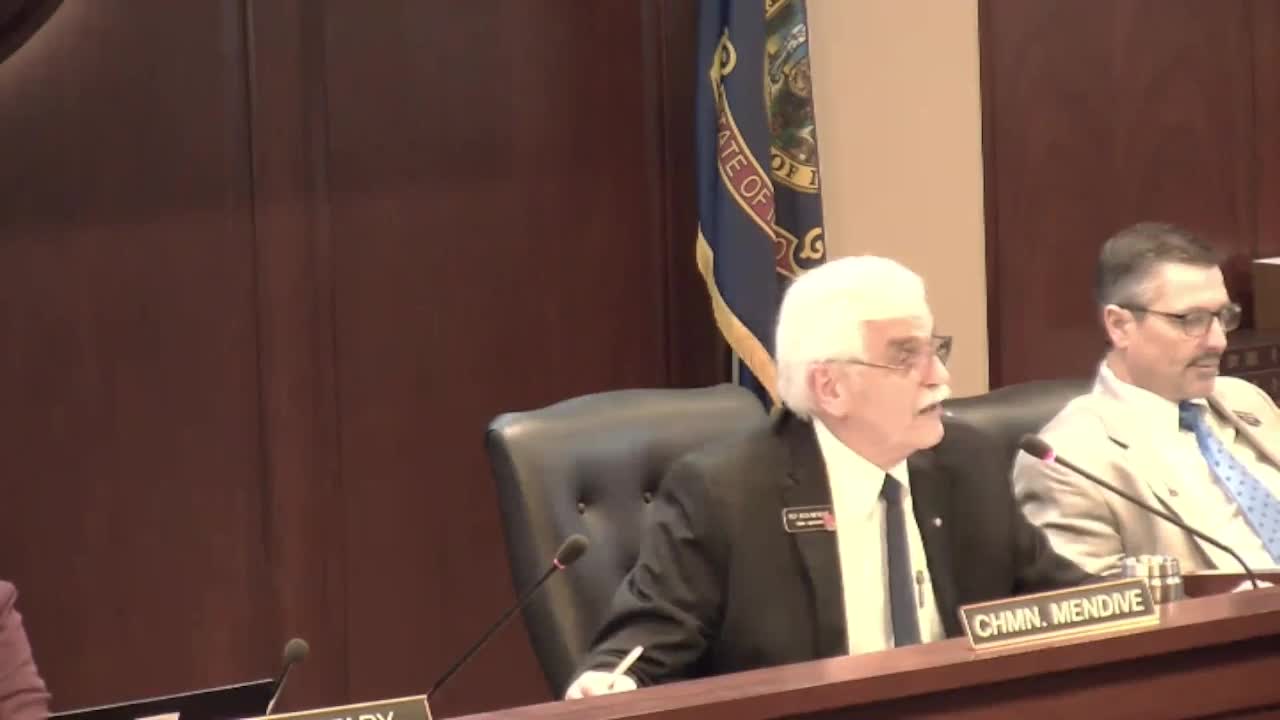Committee advances bill letting Idaho constitutional defense council consider state help for grazing and water-rights lawsuits
Get AI-powered insights, summaries, and transcripts
Subscribe
Summary
The Resource and Conservation Committee voted to send House Bill 148 to the floor with a “do pass” recommendation after debate over whether the measure would be retroactive and how much the constitutional defense fund might be used to reimburse private legal costs in suits against the federal government.
House Bill 148, sponsored by Representative Bruce, would allow Idaho citizens involved in federal lawsuits about grazing or water rights to petition the Constitutional Defense Council to request state assistance from the constitutional defense fund.
The bill’s sponsor, Representative Bruce, told the committee the measure “outlines the process for Idaho citizens involved in legal proceedings with the federal government concerning grazing and or water rights to request state assistance from the constitutional defense fund.” He said the bill specifies criteria and procedures the council would use to consider requests and the types of assistance it might offer.
Supporters said the bill narrows a path for the state to defend broad public interests. Russ Hendricks, speaking for the Idaho Farm Bureau, said the organization “support[s] House Bill 148” and that its policy allows reimbursing reasonable attorney fees when private parties must act to protect Idaho sovereignty. Pachi Phillips, representing the Idaho Association First, also stated the group’s support and said the measure was intended to be forward-looking, not retroactive.
Opponents raised constitutional and statutory concerns. Jonathan Oppenheimer, government relations director for the Idaho Conservation League, urged the committee to hold the bill and cited a February 2009 attorney general letter and Idaho statutory language he said limit the council’s authority. Oppenheimer warned the bill, as written, could authorize reimbursement of private legal costs and quoted the state’s long-standing restriction that appropriations must serve a public purpose.
Lawmakers questioned whether the bill would expand costs to the fund. Representative Andrews asked about the fiscal note, which states the fund already exists and lists no new appropriation; he asked whether expanding permissible uses could increase expenditures. Representative Bruce replied, “This does not compel them to spend any money,” adding the council retains discretion whether to take cases and that the bill does not require the fund to be used.
Members also debated whether the bill would allow petitions before, during or after litigation. Bruce said petitioners could bring matters to the council while a case is pending or after it is resolved but that the bill is not intended to reach back to cases that predate the statute’s effective date.
After testimony and debate, the committee voted by voice to send House Bill 148 to the House floor with a “do pass” recommendation. The chair declared, “I believe the ayes have it,” after a voice vote in which at least one member responded “nay”; the record did not include an exact roll-call tally.
What’s next: HB 148 will be considered by the full House. The committee record shows public witnesses for and against the bill and that members requested clarification of retroactivity and potential fiscal exposure before floor debate.
